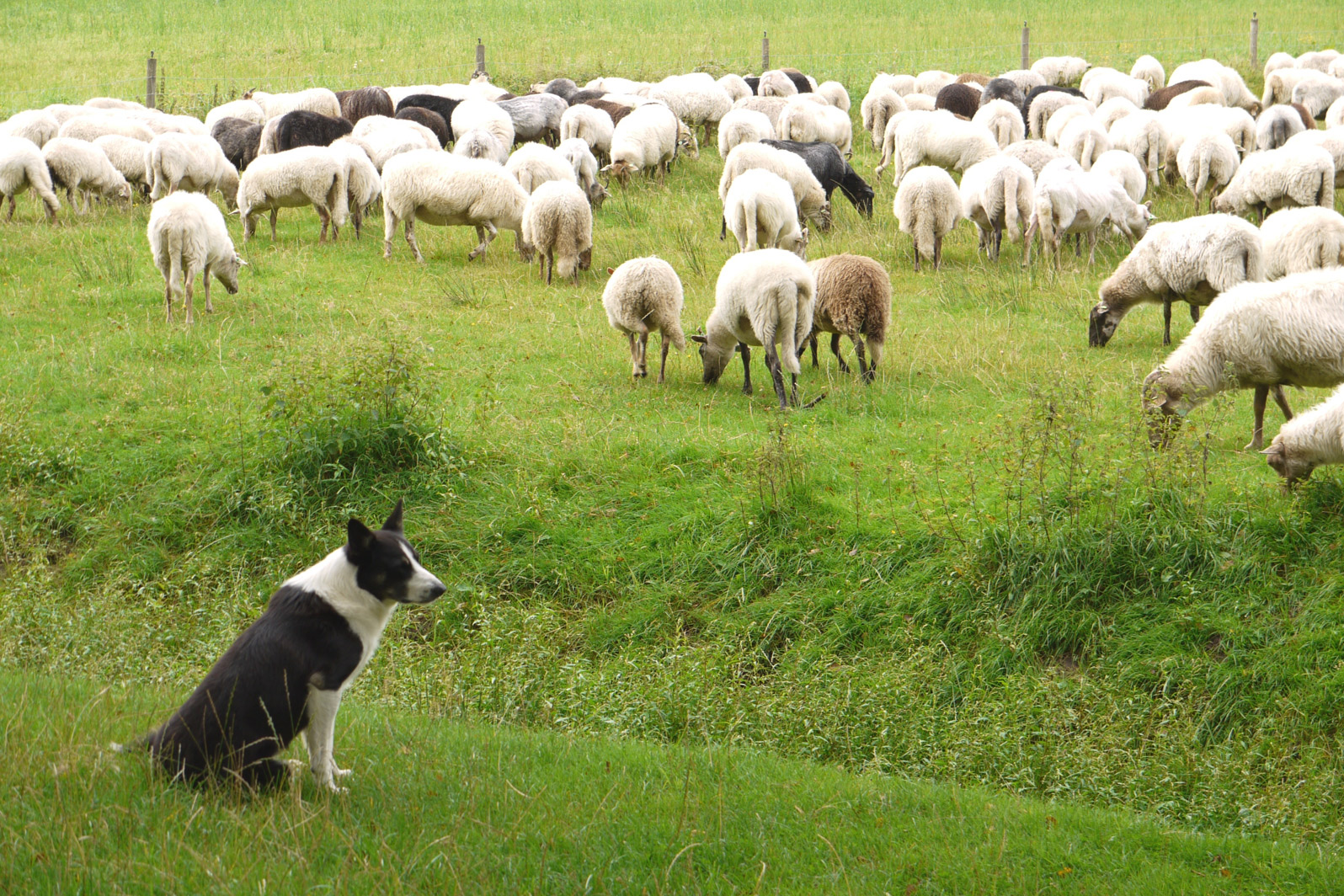24 May Guard Animals Role in Protecting Sheep

Ensuring the Safety of Our Flocks: The Role of Guard Animals in Sheep Protection
In the pastoral settings of California, where the lamb industry thrives amidst vast and varied landscapes, the threat of wildlife attacks on sheep herds is a persistent concern. Protecting these flocks is not only crucial for the welfare of the animals but also for the sustainability of our farming practices. Among the most effective strategies for safeguarding sheep is the use of guard animals. This article explores the types of guard animals used, their training, and the benefits they offer in defending against potential predators.
The Need for Protection
California’s diverse wildlife includes predators such as coyotes, mountain lions, and bears, which can pose significant threats to sheep herds. The loss of even a single sheep can have substantial economic repercussions for farmers, not to mention the emotional toll of losing animals under their care. Effective predator management is thus essential for both animal welfare and farm economics.
Types of Guard Animals
The most common types of guard animals include dogs, llamas, and donkeys. Each type of guard animal has unique characteristics that make them suited to different pastoral environments and types of threats.
Guard Dogs
Breeds like the Great Pyrenees, Anatolian Shepherd, and Maremma Sheepdog are renowned for their protective instincts and loyalty to their flock. These dogs are raised with the sheep from a young age, which allows them to bond with the flock and instinctively protect it against threats.
“Guard dogs are by far the most widely used guard animal in the industry. They have the ability to cover large amounts of land. Their use on small operations can be challenging as they often roam. Some dogs are better at staying close than others,” says Brian Gilardi of G&J Ag Services.
Llamas
Surprisingly effective as guard animals, llamas have a natural aversion to canines, which makes them excellent at deterring coyotes and other similar predators. A single llama can often guard a large flock of sheep, and their presence can be a significant deterrent to potential predators.
Donkeys
Known for their strong territorial behavior and loud brays, donkeys can be an effective means of keeping predators at bay. They are particularly good at guarding against coyotes and foxes and are known to confront intruders aggressively if provoked.
Training and Care of Guard Animals
The training of guard animals begins from a very young age. For guard dogs, integration with the flock early in life is crucial for developing a strong bond with the sheep they protect. Regular training sessions help these dogs understand their role and boundaries.
Llamas and donkeys require less intensive training compared to dogs but must still be acclimatized to the presence of sheep and the specific environment of the farm. Regular health checks, proper nutrition, and adequate shelter are essential for maintaining the health and effectiveness of guard animals.
Benefits of Using Guard Animals
The use of guard animals offers numerous benefits.
Effective Deterrence
The presence of guard animals can significantly reduce the likelihood of predator attacks.
Constant Surveillance
Unlike mechanical systems or fencing, guard animals provide constant surveillance, often detecting and deterring predators before they can cause harm.
Economic Efficiency
Investing in guard animals can be more cost-effective in the long run compared to recurring losses from wildlife attacks.
Animal Welfare
Guard animals help ensure the safety and stress-free living of sheep, contributing to better overall health and productivity.
The integration of guard animals into sheep farms across California has proven to be an invaluable strategy in the quest to protect valuable livestock from the threats posed by native predators. By choosing the appropriate type of guard animal and providing proper training and care, farmers can significantly enhance the security and productivity of their flocks. As we continue to respect and adapt to our shared environment, the role of guard animals remains a cornerstone of sustainable agricultural practices.

